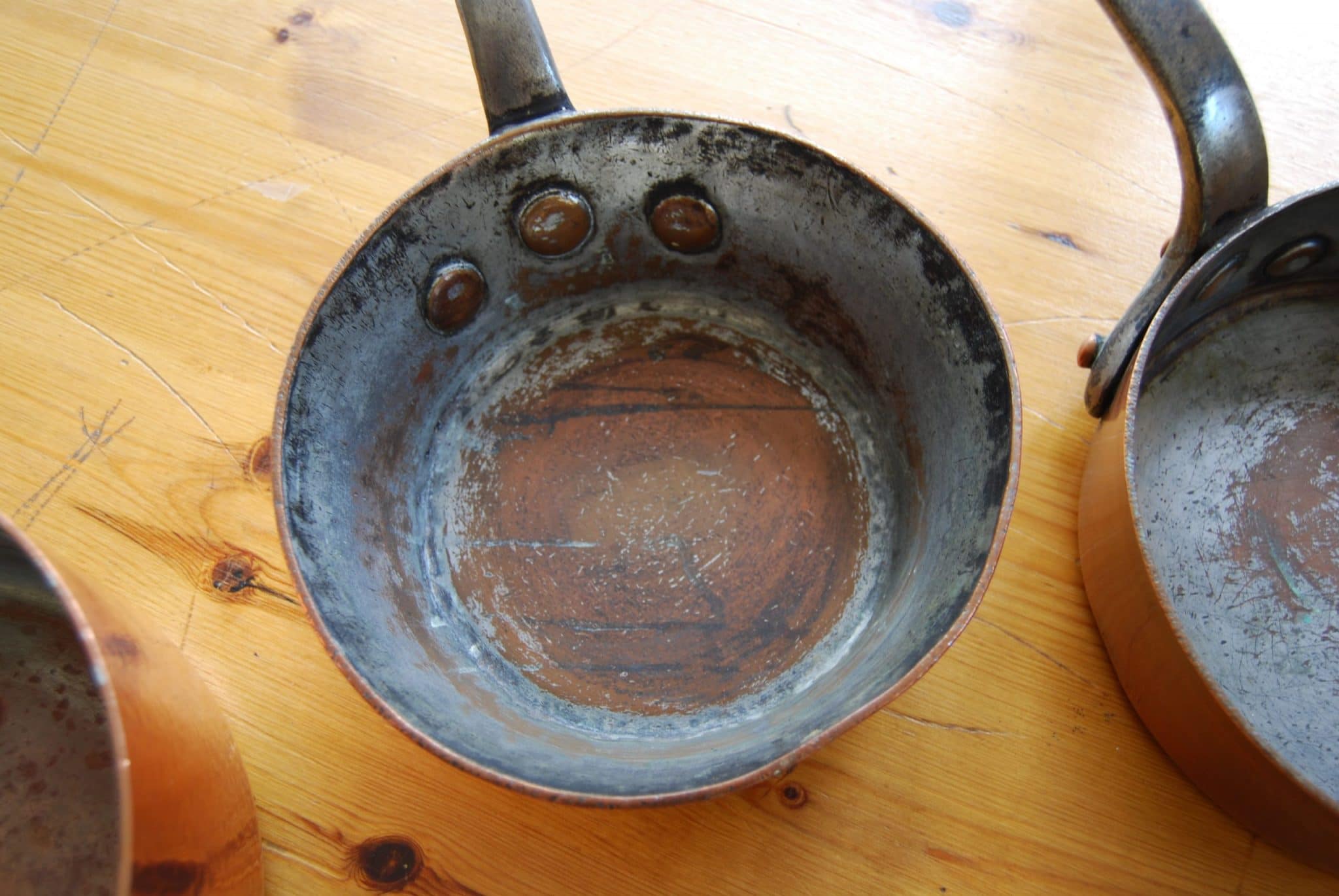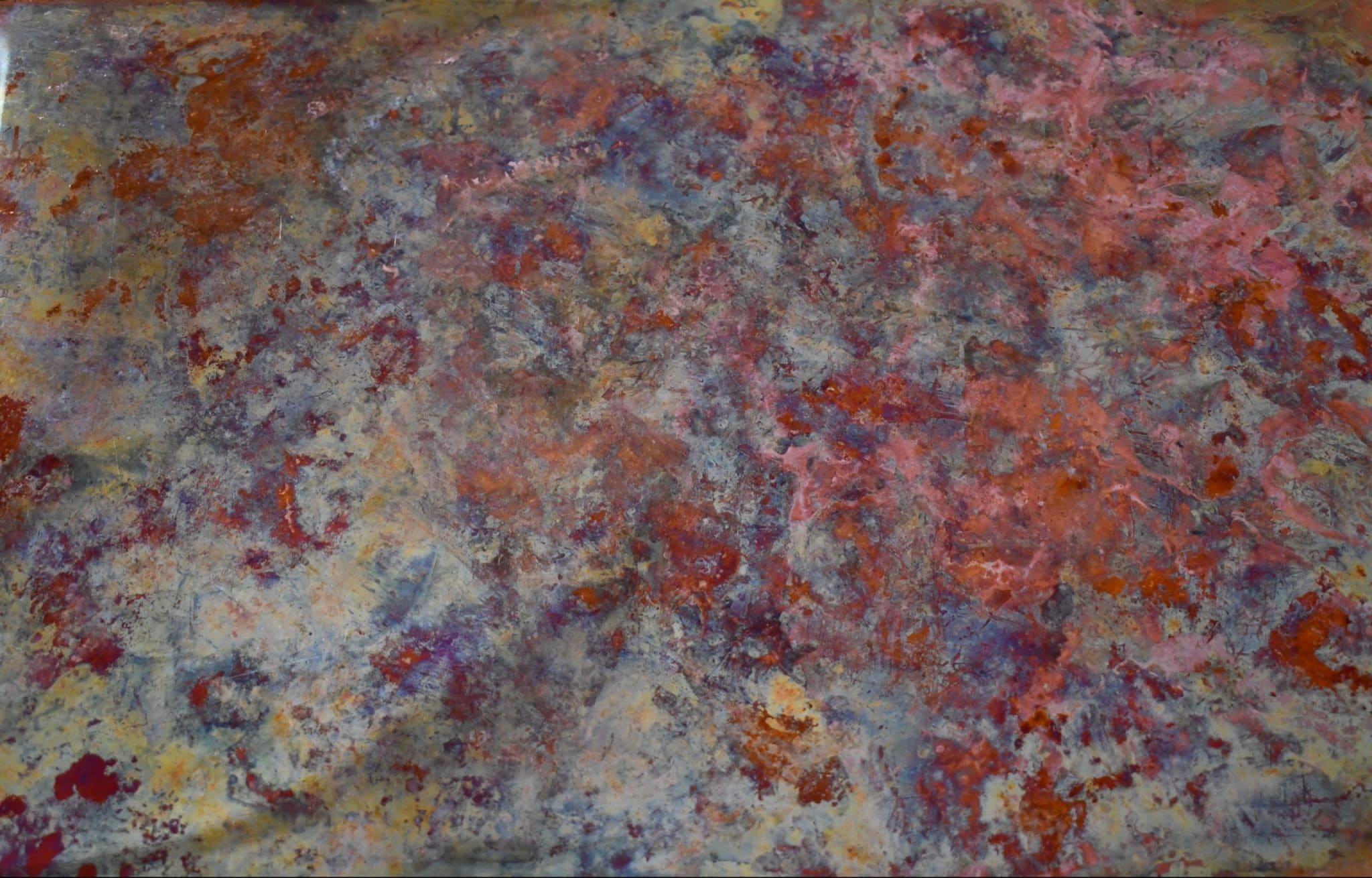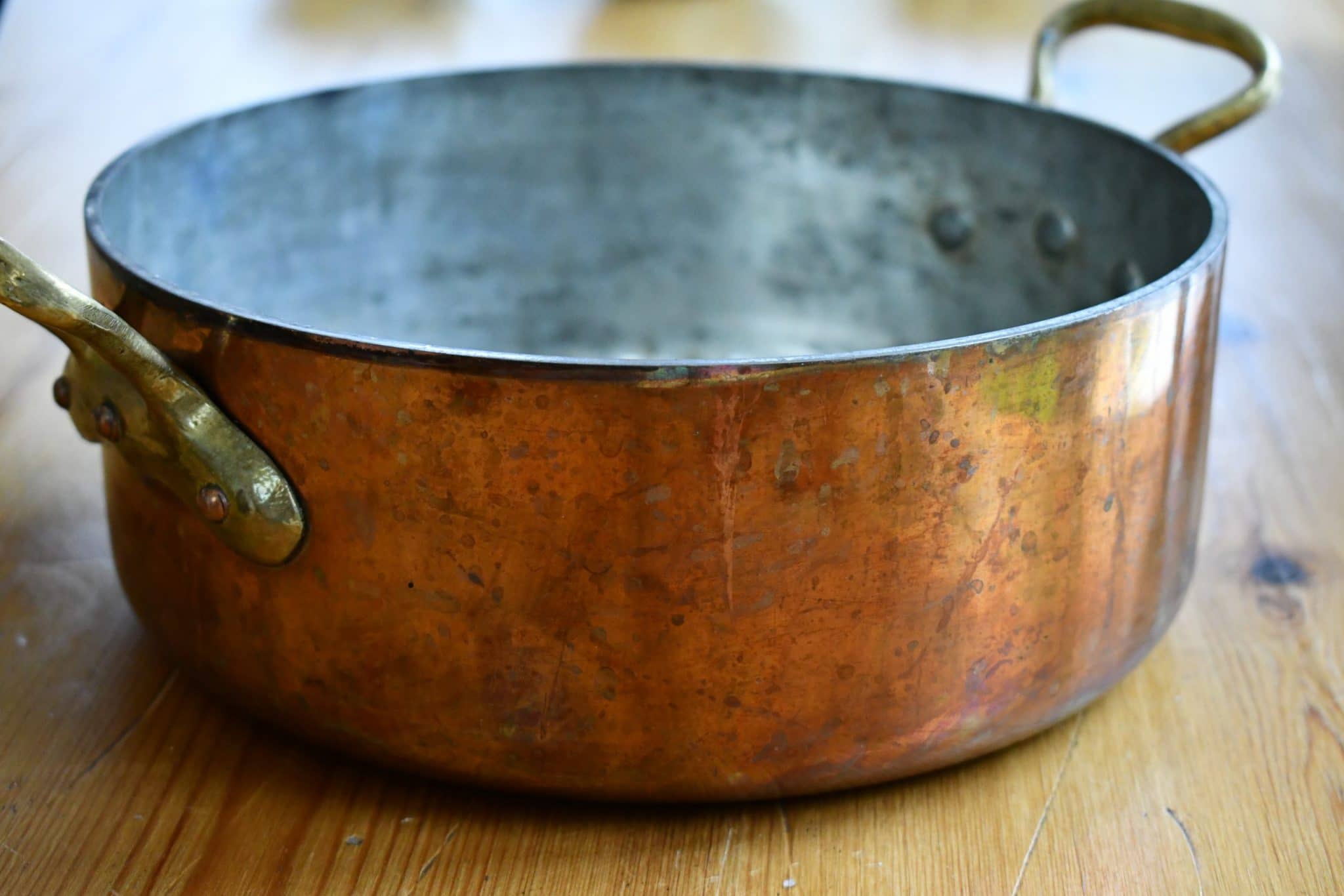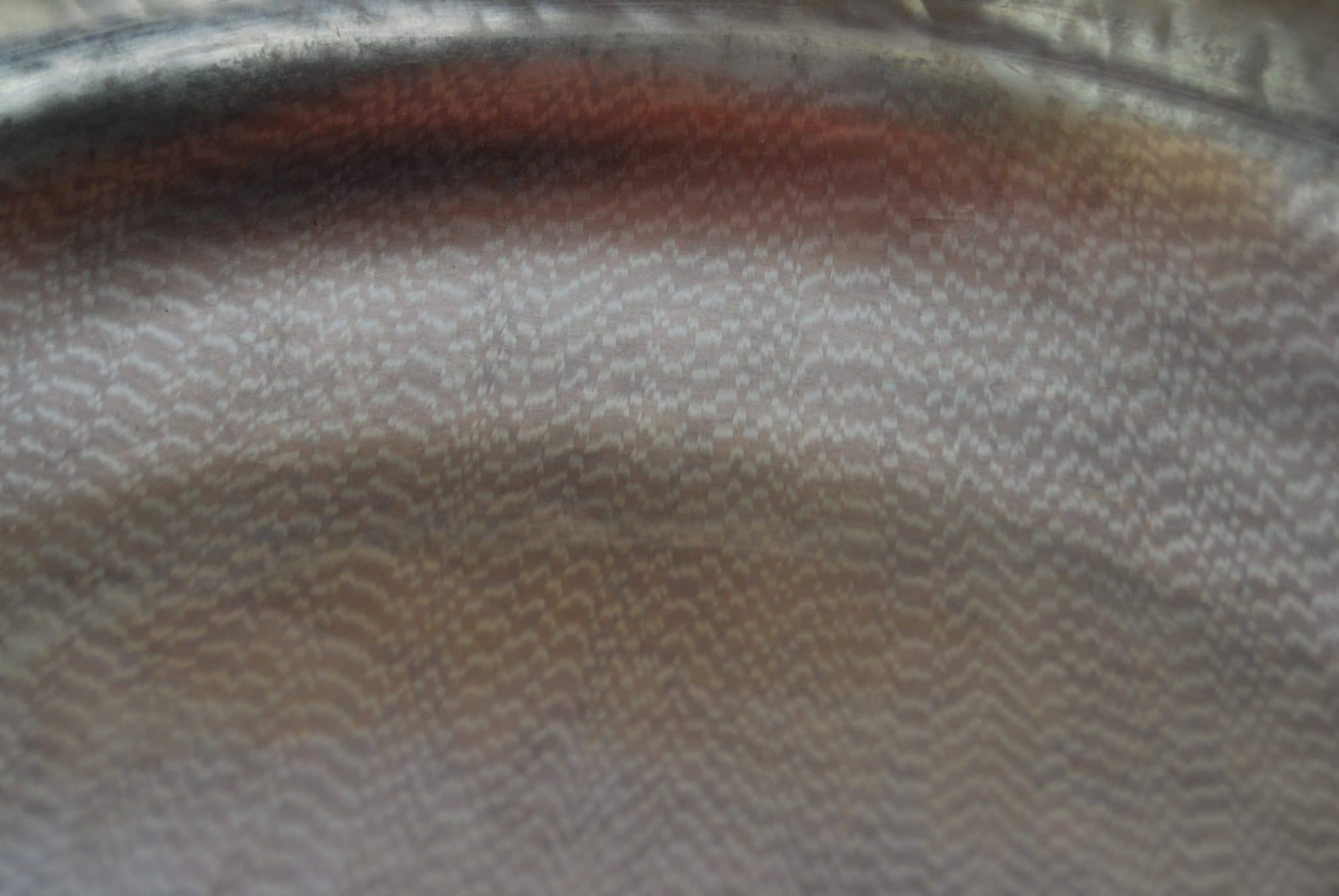Scientific research affirms that the tin lining of a copper pot is non-toxic.
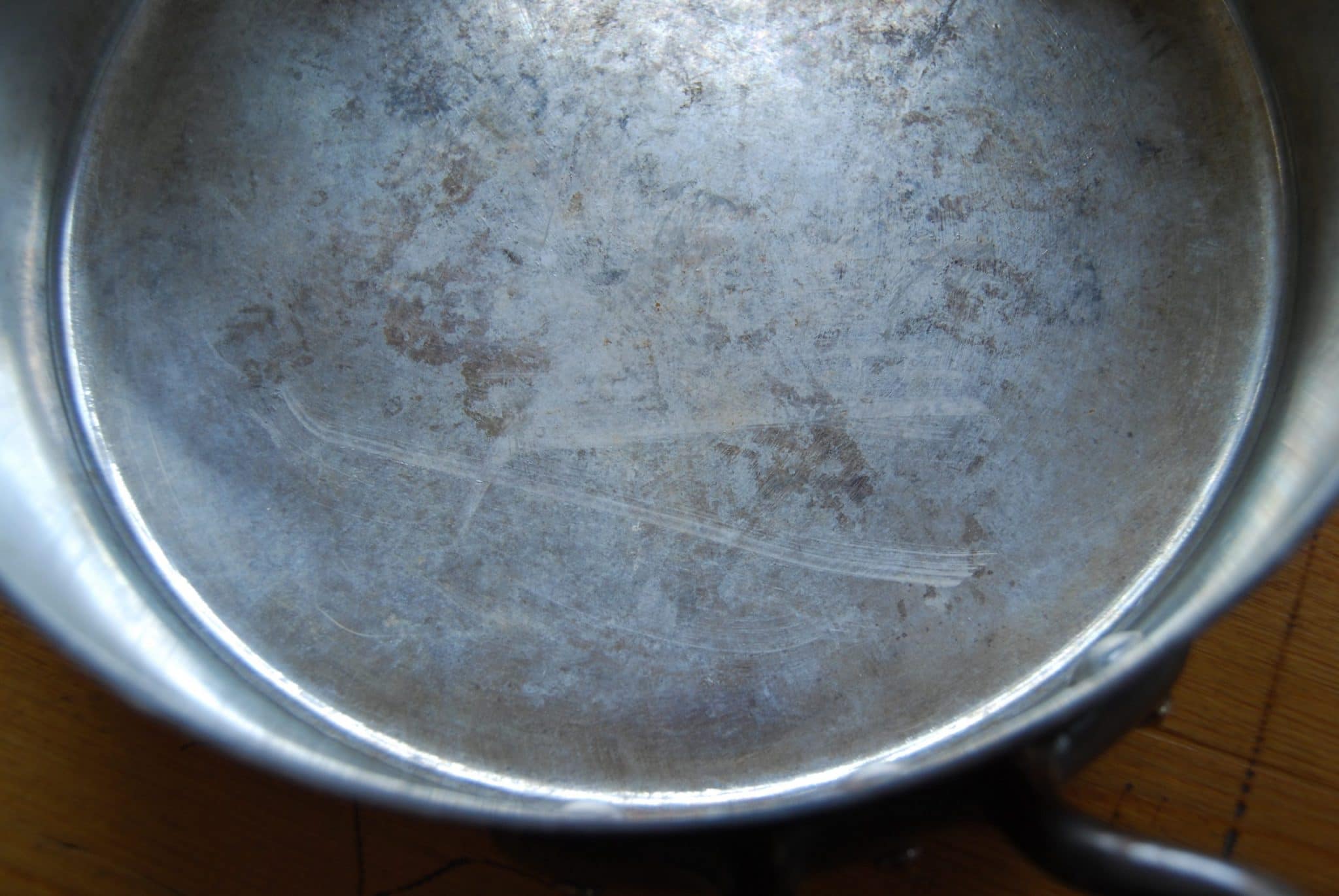
One of the first things I had to accept when cooking with vintage copper is that the tin lining wears away over time. Tin is a relatively soft metal, and as I cook and scrape and clean my pan I am lifting away a tiny bit of tin. With common-sense care, a tin lining can last for decades, but I still assume that some tin is wearing away from my pans when I cook with and clean them.
The thing is, when tin wears away, some of it could very well go into my food. Is it safe for me to eat a tiny quantity of tin now and then?
The answer is, yes, it is safe: scientific research affirms that tin is non-toxic.
According to the US Center for Disease Control’s Public Health Statement for Tin:
When you eat tin in your food, very little leaves the gastrointestinal tract and gets into your bloodstream. Most tin travels through the intestines and leaves your body in the feces. Some leaves your body in the urine… If you swallow some metallic tin particles, they will leave your body in the feces… Your body can rid itself of most inorganic tin in weeks, but some can stay in your body for 2-3 months. Inorganic tin compounds leave your body very quickly; most are gone within a day. Very small amounts of tin stay in some tissues of your body, like the bones, for longer periods of time.
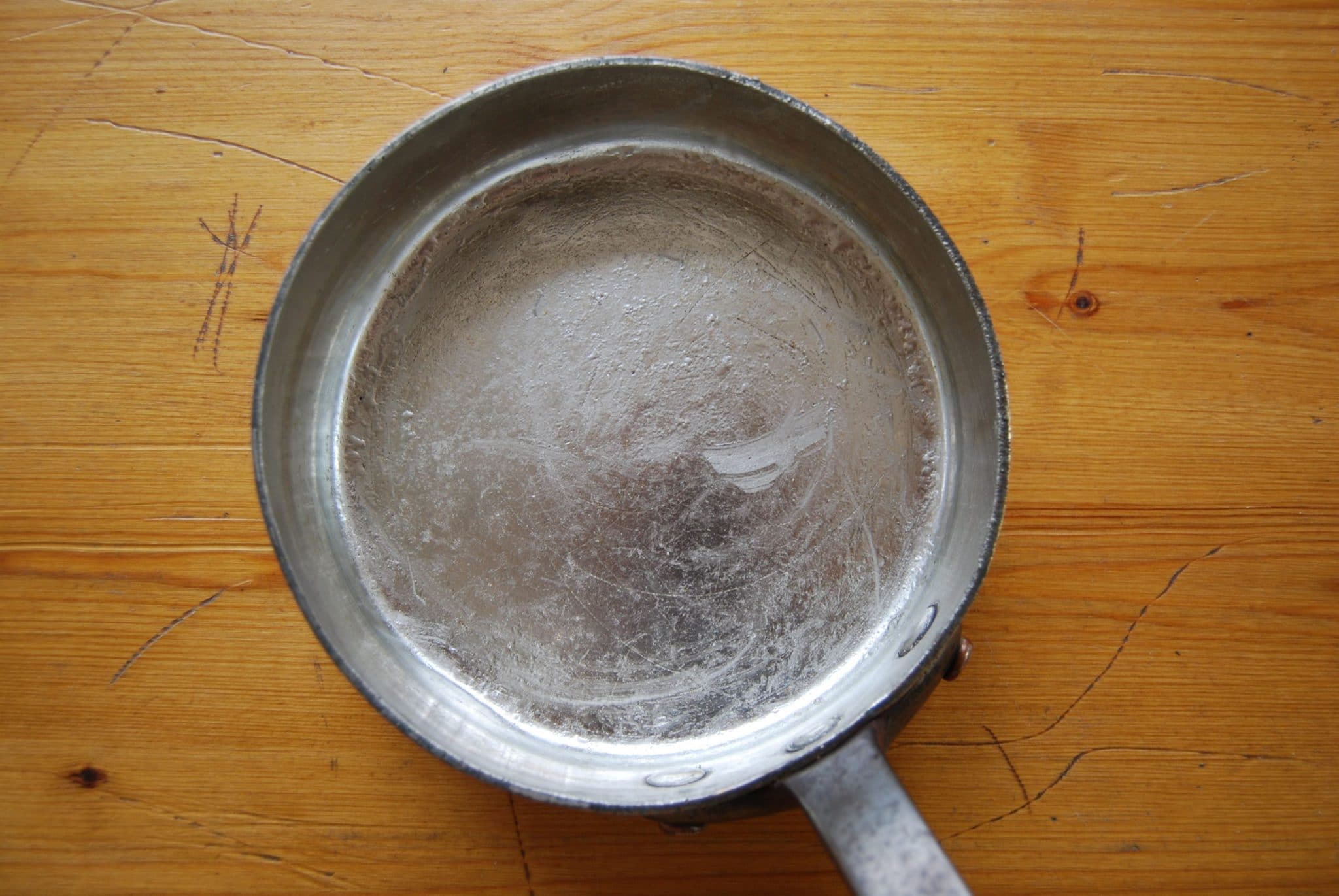
If you do ingest tin, it is not likely to be harmful to you unless you consume it in high quantities as part of a scientific study. Again from the US CDC:
Because inorganic tin compounds usually enter and leave your body rapidly after you breathe or eat them, they do not usually cause harmful effects. However, humans who swallowed large amounts of inorganic tin in research studies suffered stomachaches, anemia, and liver and kidney problems. Studies with inorganic tin in animals have shown similar effects to those observed in humans. There is no evidence that inorganic tin compounds affect reproductive functions, produce birth defects, or cause genetic changes. Inorganic tin compounds are not known to cause cancer.
People keep using tin to line cookware because it’s safe for use with food and drink. “Cases of poisoning from tin metal, its oxides, and its salts are almost unknown… [Tin] is not easily absorbed by animals and humans. The low toxicity is relevant to the widespread use of tin in dinnerware and canned food.” (G. G. Graf ,”Tin, Tin Alloys, and Tin Compounds” in Ullmann’s Encyclopedia of Industrial Chemistry, 2005 Wiley-VCH, Weinheim.)
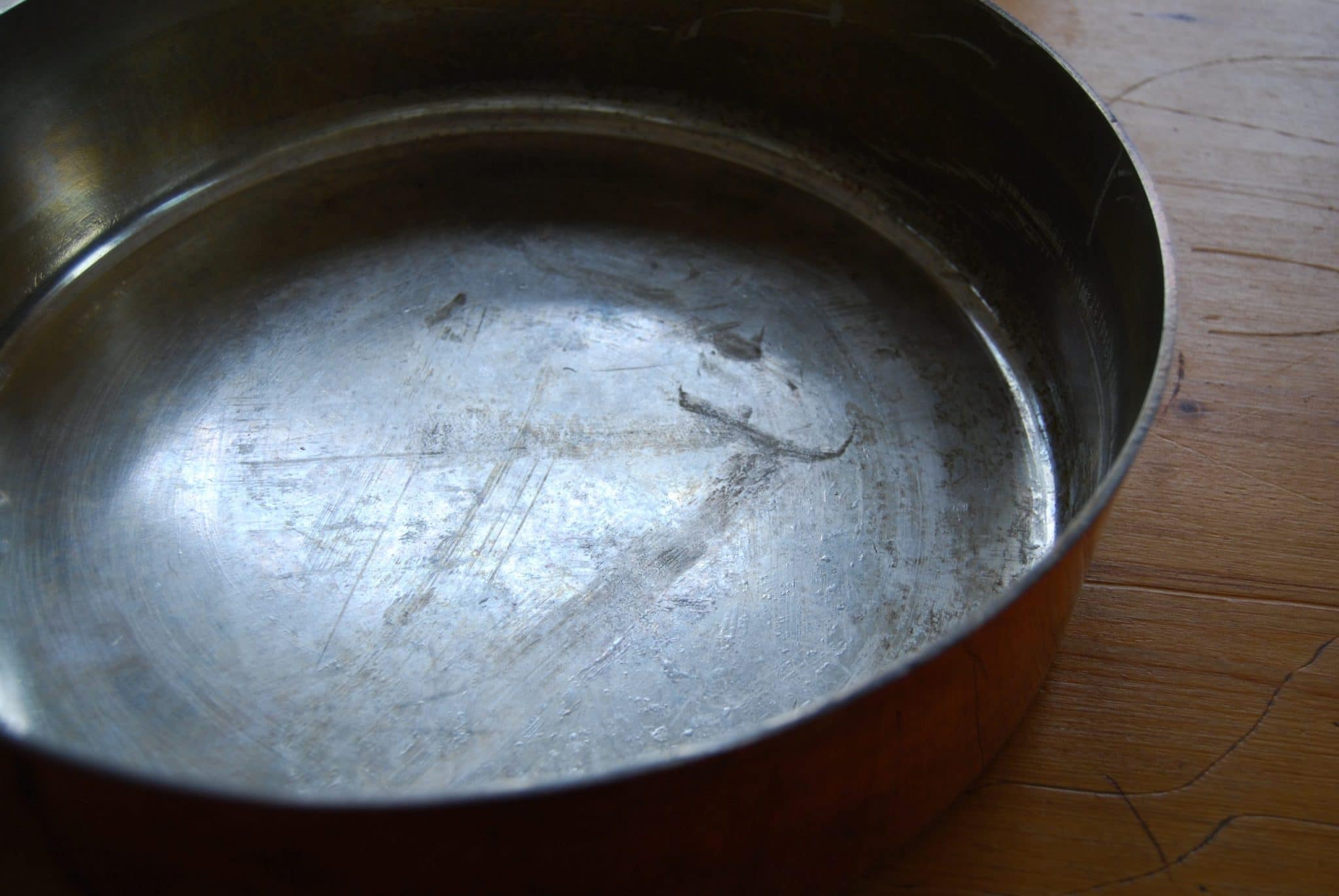
I’m not worried about tin leaching into my food when I cook, or about any melted tin particles that I scrape into my food by accident. I’m reassured by multiple scientific authorities that this will not affect me at all. If you’re concerned about tin, I encourage you to do your own research, but also keep in mind centuries of safe tin use and multiple trusted scientific authorities that continue to endorse its use.
